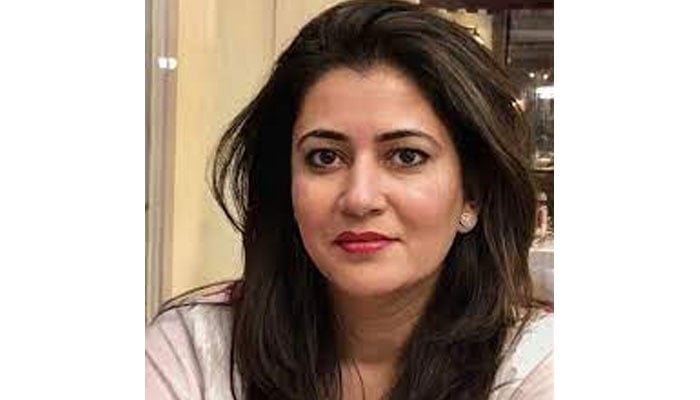Sightsavers calls for accessible healthcare for women, girls
Islamabad:In Pakistan and across the world, women and girls face inequalities that increase their risk of disease, disability, gender-based violence, and mortality.
For example, women are more likely to be blind, but men are twice as likely to have access to necessary eye care than women. And for many women, getting their health issues addressed is at the bottom of a long list of challenges and priorities.
This International Women’s Day, Wednesday 8 March, international development organisation Sightsavers is calling for all health services to be inclusive and accessible for women and girls, including those with disabilities.
Munazza Gillani, Sightsavers Pakistan’s Country Director, said: “Some diseases affect more women than men. Women are four times more likely to develop infectious eye diseases than men. They are also more likely to be blind or have a visual impairment, but much less likely to have access to the eye care they need. “
“Without action, women will continue to be left behind in health care, having their health, and chances of education and employment curtailed.” This International Women’s Day, Sightsavers is also celebrating trailblasing women who are going above and beyond to make this happen.
This includes Munazza Gillani herself, who has worked for the organisation for more than 16 years and in this time has worked hard for inclusion of women in health services both on demand and supply side.
It also includes Leena Ahmed, a Programme Manager for Eye Health and Inclusion who has an incredible record of executing inclusive eye health projects, has very legitimate findings from the field. According to her, in rural settings, women are not allowed to go to the health facilities unless and until they are accompanied by a male member of family. She is leading work to meet these challenges by providing eye care services at primary level.
Leena said: “Women do tend to be able to access basic eye examination or eye screening services. But when it comes to the surgical services, which involves cost and money, the male [family] member will decide whether it's of use of spending so much money on a women's surgery or a pair of glasses. This can badly affect how women can access eye health services because they are dependent on the male members of their family, and they look up to them for decisions on such matters.”
-
 Meghan Markle 'not Anxious' About Prince Harry Moving To UK: Here's Why
Meghan Markle 'not Anxious' About Prince Harry Moving To UK: Here's Why -
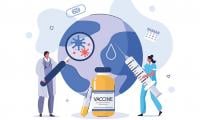 Vaccines May Do Far More Than Prevent Infections
Vaccines May Do Far More Than Prevent Infections -
 Apple Plans To Roll Out Siri AI Chatbot By 2026
Apple Plans To Roll Out Siri AI Chatbot By 2026 -
 Tenacious D Star Kyle Gass Addresses Major Controversial Joke
Tenacious D Star Kyle Gass Addresses Major Controversial Joke -
 Nicola Peltz's Ex's Sister Reveals 'truth' About Actress Amid Brooklyn Beckham Drama
Nicola Peltz's Ex's Sister Reveals 'truth' About Actress Amid Brooklyn Beckham Drama -
 Davos: Elon Musk’s Surprise Addition To The Schedule Draws Global Attention
Davos: Elon Musk’s Surprise Addition To The Schedule Draws Global Attention -
 Why Kylie Jenner's Family Loves Timothée Chalamet
Why Kylie Jenner's Family Loves Timothée Chalamet -
 World's Oldest Artwork: 68,000 Year-old Cave Paintings Discovered In Indonesia
World's Oldest Artwork: 68,000 Year-old Cave Paintings Discovered In Indonesia -
 Brooklyn Beckham’s Family Feud Shows No Signs Of Healing Anytime Soon
Brooklyn Beckham’s Family Feud Shows No Signs Of Healing Anytime Soon -
 Spain Calls For EU Joint Army After Trump’s Declaration Of Greenland Deal
Spain Calls For EU Joint Army After Trump’s Declaration Of Greenland Deal -
 Elon Musk Pokes Fun At Anthropic, Calls It 'misanthropic'
Elon Musk Pokes Fun At Anthropic, Calls It 'misanthropic' -
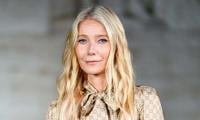 Gwyneth Paltrow Opens Up About Coping With ‘anxiety’
Gwyneth Paltrow Opens Up About Coping With ‘anxiety’ -
 New Study Links ‘binge-watching Addiction’ To Increased Social Isolation
New Study Links ‘binge-watching Addiction’ To Increased Social Isolation -
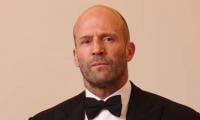 Jason Statham Reflects On Intenses Physical Demands Of Work
Jason Statham Reflects On Intenses Physical Demands Of Work -
 Why Cancer Comes Back And How Scientists Believe It Can Be Stopped
Why Cancer Comes Back And How Scientists Believe It Can Be Stopped -
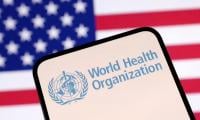 US To Exit WHO: A Seismic Shift In Global Health?
US To Exit WHO: A Seismic Shift In Global Health?
